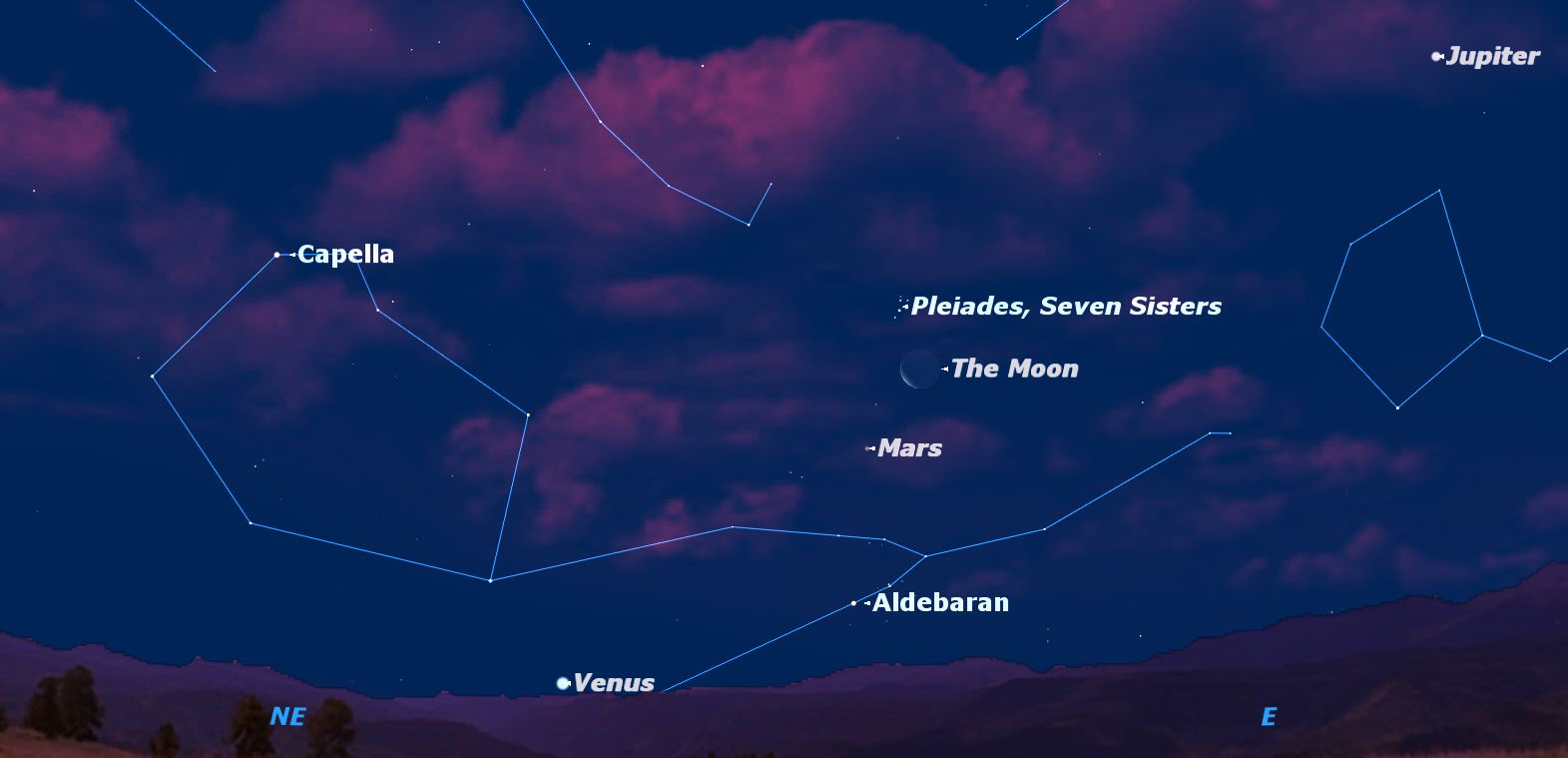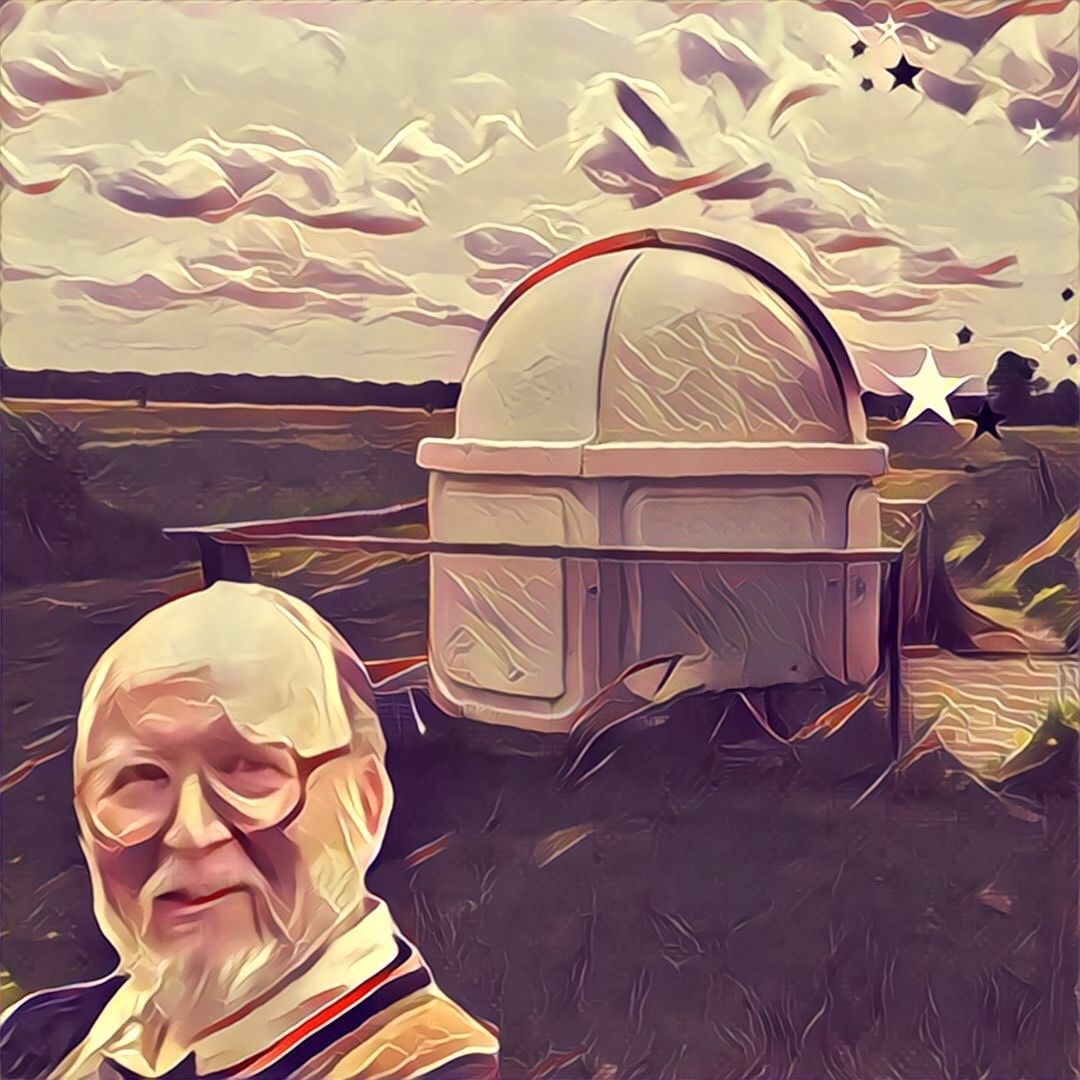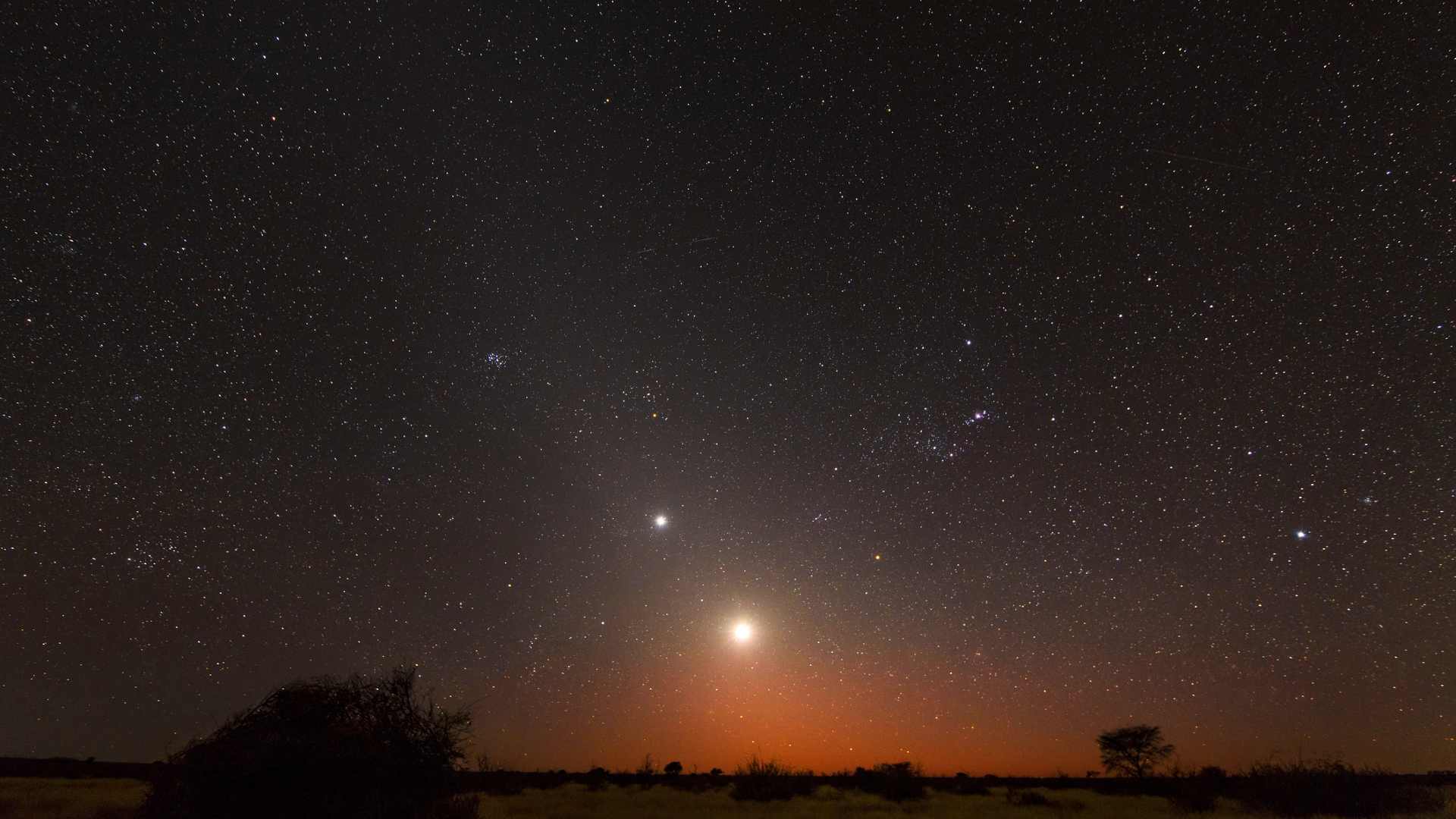Three Planets Now Shining Like Jewels in Dawn Sky

Breaking space news, the latest updates on rocket launches, skywatching events and more!
You are now subscribed
Your newsletter sign-up was successful
Want to add more newsletters?

Delivered daily
Daily Newsletter
Breaking space news, the latest updates on rocket launches, skywatching events and more!

Once a month
Watch This Space
Sign up to our monthly entertainment newsletter to keep up with all our coverage of the latest sci-fi and space movies, tv shows, games and books.

Once a week
Night Sky This Week
Discover this week's must-see night sky events, moon phases, and stunning astrophotos. Sign up for our skywatching newsletter and explore the universe with us!

Twice a month
Strange New Words
Space.com's Sci-Fi Reader's Club. Read a sci-fi short story every month and join a virtual community of fellow science fiction fans!
Early risers this week may see a beautiful array of bright objects on the northeast horizon: three bright planets, two bright stars, and the brightest star cluster in the dawn sky, weather permitting.
The planets are Venus, Jupiter and Mars, and will also be joined by the waning crescent moon on the morning of Tuesday, June 28.
Even though it is midsummer, the bright stars of autumn are visible to those who stay up late or rise early. In particular, two first magnitude stars, white Capella in Auriga (magnitude +0.1) and red Aldebaran in Taurus (magnitude +0.8), rise above the northeastern horizon just before the sun.
The sky map found here shows how the planets and stars appear at dawn this week.
The brightness of stars and other objects in the sky is described using a scale of magnitudes. On this scale, the brightest stars are around magnitude 1 while the faintest stars that can be seen by the naked eye are magnitude 6. Because this is an inverse scale, especially bright objects like Venus and Jupiter are represented by negative magnitude numbers. [Skywatching Events for June 2011]
Stars and planets
After spotting Aldebaran and Capella, skywatchers can search for Venus, Jupiter and Mars.
Breaking space news, the latest updates on rocket launches, skywatching events and more!
Lowest on the horizon is Venus, the brightest of the planets at a magnitude –3.9. Venus is currently heading behind the sun, moving towards what astronomers call a superior conjunction on Aug. 16.
Jupiter,the second brightest planet with a magnitude –2.2, is now riding high in the east. In between these two is the Red Planet Mars, which is just emerging from behind the sun. Mars is the least bright of these morning objects and has a magnitude of +1.4.
Pleiades joins the show
Just above Mars is the brightest star cluster in the sky: the Pleiades, also magnitude +1.4. This is a cluster of newly born stars with about 800 members, located 400 light-years from the sun.
It has been known since antiquity and has many legends associated with it in different clusters, The Greeks knew it as the Pleiades, the Japanese as Subaru.
In English it is sometimes called the Seven Sisters after its brightest stars; modern Australians know it as "the Shopping Cart."
As if this garden of celestial treasures weren’t enough, on Tuesday morning, June 28, they will be joined by a slender crescent moon, perfectly placed between the Pleiades and Mars. Definitely worth getting up early to see.
This article was provided to SPACE.com by Starry Night Education, the leader in space science curriculum solutions. Follow Starry Night on Twitter @StarryNightEdu.

Geoff Gaherty was Space.com's Night Sky columnist and in partnership with Starry Night software and a dedicated amateur astronomer who sought to share the wonders of the night sky with the world. Based in Canada, Geoff studied mathematics and physics at McGill University and earned a Ph.D. in anthropology from the University of Toronto, all while pursuing a passion for the night sky and serving as an astronomy communicator. He credited a partial solar eclipse observed in 1946 (at age 5) and his 1957 sighting of the Comet Arend-Roland as a teenager for sparking his interest in amateur astronomy. In 2008, Geoff won the Chant Medal from the Royal Astronomical Society of Canada, an award given to a Canadian amateur astronomer in recognition of their lifetime achievements. Sadly, Geoff passed away July 7, 2016 due to complications from a kidney transplant, but his legacy continues at Starry Night.
